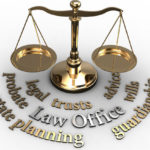Category Archives: trusts

Signs Your Trustee Has Breached Fiduciary Duties
Trustees are invested with considerable power when administering a trust. As a beneficiary, you might have concerns about how the trustee is handling trust assets, including whether the trustee is taking unfair advantage of you. At Millhorn Law, our trust administration attorneys in The Villages understand the law of fiduciary duties quite well. We… Read More »

5 Mistakes to Avoid with a Trust
Trusts are a popular estate planning tool, as they provide flexibility and more options than a standard will. For example, some trusts can reduce estate taxes, while others can make it possible for your beneficiaries to continue to receive government benefits. Creating a trust is not a “one size fits all” process, which is… Read More »

Revocable versus Irrevocable Trust: Which is Right for You
Many of our clients use a trust as part of their overall estate plan. A trust is a legal vehicle in which a trustee holds and manages property for the benefit of someone else, called the beneficiary. There are generally two types of trusts: revocable and irrevocable. Below, our estate planning lawyer in The… Read More »

What Makes a Good Trustee?
The person who administers a trust is called a “trustee.” This person will have enormous power, so it is important to choose someone who is well qualified for the job. With many inter vivos trusts, the person creating the trust serves as its trustee. But in some situations, it makes more sense to name… Read More »

Reasons to Contest a Trust
Many people have heard of a will contest, where heirs challenge a will on the grounds that it is not valid. If successful, a judge will refuse to admit the will into probate, and the estate assets will be distributed according to a prior will or the state’s intestacy rules. Trusts can also be… Read More »

3 Problems when Administering a Trust
Many people make a trust an integral part of their estate plan. Trusts can offer many advantages, including the ability to pass assets outside probate. However, someone needs to administer the trust. Many people serve as the initial trustee, but after their deaths someone must take over, often a family member or a close… Read More »

Considerations When Naming A Beneficiary To Your Retirement Account
To have a proper estate plan, you will need either a will or a trust (or both). However, some property will pass outside of probate by other means. One such asset will be your retirement account. Once you identify who you want to receive your benefits after you die, you will designate them by… Read More »

Choosing A Successor Trustee
A revocable living trust can be an important part of any estate plan. When creating the trust, you appoint yourself as trustee to oversee the management of the trust assets. But what happens when you die, or if you become incapacitated and can no longer make decisions? In these situations, someone else needs to… Read More »

Four Avoidable Trust Mistakes
A trust is a helpful estate planning tool. With a trust, you sign over assets to be managed by a trustee, who manages them on behalf of the trust’s beneficiaries. As an alternative to a will, a trust can help reduce the size of your estate and allow you to avoid estate taxes at… Read More »

Estate Planning Considerations For Your Family
If you are planning on getting married or expanding your family in 2018, you also need to review your estate planning needs and make appropriate changes. After your wedding, you should revise your will and ensure that your spouse is included in your division of assets. Your spouse will have opportunity under Florida law… Read More »


